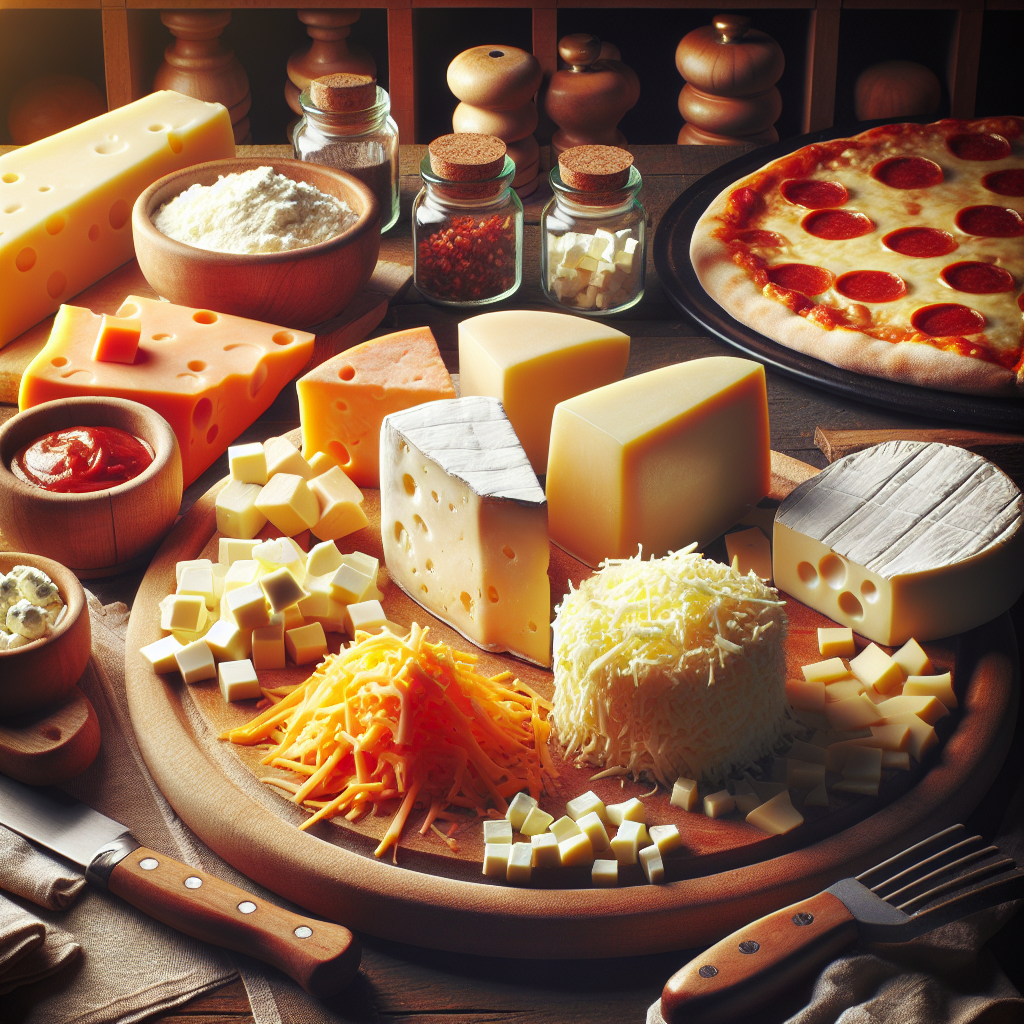Cheese for Pizza: Must-Have Options for the Best Flavor
Cheese for pizza is a critical ingredient that can elevate the entire dining experience. While the crust and sauce are foundational, it’s the cheese that often steals the spotlight. The right cheese can enhance flavors, improve texture, and create that perfect melty goodness that pizza lovers crave. In this article, we’ll explore various cheese options that are must-haves for achieving the best flavor in your pizzas.
The Classics: Mozzarella

Mozzarella is the undisputed king of pizza cheese. Its mild flavor, creamy texture, and excellent melting properties make it the number one choice for pizzerias and home cooks alike. Traditionally made from buffalo’s milk, modern mozzarella is primarily made from cow’s milk and can be found in various forms—fresh, low-moisture, and part-skim.
Fresh Mozzarella vs. Low-Moisture Mozzarella
– Fresh Mozzarella: Soft and creamy, fresh mozzarella has a higher moisture content. It’s perfect for Neapolitan-style pizzas, giving a delightful burst of flavor. However, it does require a careful baking approach to avoid excess moisture.
– Low-Moisture Mozzarella: This type is often used in American-style pizzas, as it has a firmer texture and melts beautifully without becoming too watery. It also offers that attractive golden-brown finish when cooked.
Gourmet Options: Provolone and Fontina
For those looking to add a twist to their classic cheese blend, provolone and fontina are excellent options.
Provolone
Provolone is an Italian cheese that has a slightly tangy and sharp flavor. With its excellent melting properties, it complements mozzarella well, adding depth to your pizza. You can use either aged or mild provolone, depending on your preference for intensity.
Fontina
Fontina cheese brings a rich, earthy flavor to pizza. It melts beautifully, creating a creamy sauce-like texture. A blend of mozzarella and fontina is a great way to upgrade your cheese game, especially for recipes that feature mushrooms or roasted vegetables.
A Touch of Boldness: Cheddar and Gouda
If you’re craving something more robust, cheddar and gouda are the way to go. These cheeses add a unique flavor profile that can transform your pizza.
Cheddar
Known for its sharpness, cheddar can bring a punch to your pizza. Its crumbly texture works well when mixed with mozzarella, especially in a barbecue chicken pizza or a cheeseburger pizza. Just be aware that cheddar doesn’t melt as smoothly as mozzarella, so use it judiciously.
Gouda
Gouda, with its slightly sweet and nutty flavor, pairs exceptionally well with other cheeses. Young gouda is great for melting, while aged gouda can offer more complexity. A blend of mozzarella, gouda, and a sprinkle of smoked gouda can create a show-stopping masterpiece.
Non-Traditional Cheeses: Goat Cheese and Ricotta
For the adventurous, goat cheese and ricotta can add unexpected layers of flavor to your pizza.
Goat Cheese
Goat cheese’s tangy and creamy texture provides a sharp contrast to the sweetness of tomato sauce. Crumbled goat cheese pairs exceptionally well with toppings such as figs, arugula, and caramelized onions.
Ricotta
Ricotta cheese might be unconventional for pizza, but it can elevate your dish when used as a dollop on top of the finished pizza. Its mild and slightly sweet flavor softens the intensity of other ingredients, making it a great addition for white pizzas or those featuring spinach.
Vegan Alternatives: Plant-Based Cheeses
As the demand for plant-based options rises, vegan cheese has become a viable alternative for pizza lovers seeking dairy-free choices.
Nutritional Yeast
While not technically cheese, nutritional yeast can mimic the umami flavor of cheese. It’s rich in vitamins and can be sprinkled on top of pizzas as a seasoning to give a cheesy taste without dairy.
Vegan Cheeses
Many brands now produce plant-based cheeses that melt, such as cashew cheese, almond cheese, and coconut-based options. These can be mixed with traditional cheeses for a hybrid approach or used alone for a fully vegan pizza.
Conclusion
Choosing the right cheese for pizza is vital for flavor and texture. From the beloved mozzarella and delicious provolone to more adventurous options like goat cheese and vegan alternatives, the possibilities are endless. Experimenting with a combination of these cheeses can lead to culinary masterpieces that cater to diverse palates. As you embark on your pizza-making journey, remember that the cheese plays a charismatic role in your culinary creation—choose wisely!

